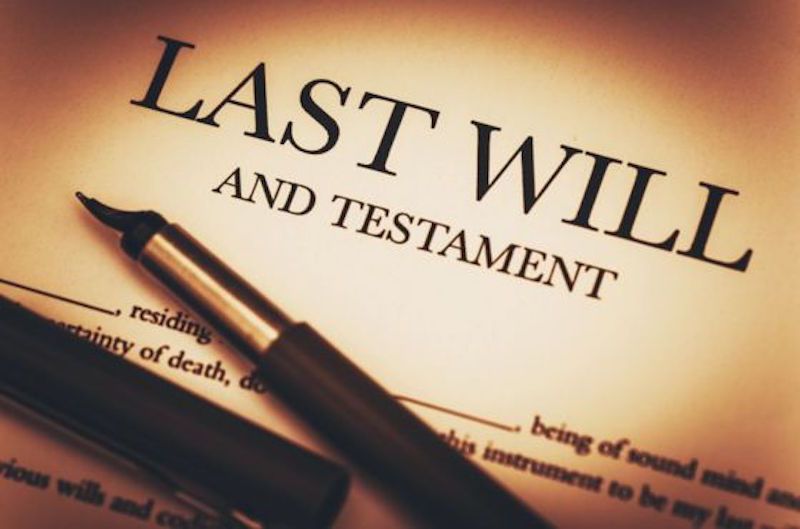In the United States, death is an avoided topic. Many people act as if they’ll never die. And when someone does die, there’s a lot of confusion. Who’s responsible for the funeral? How does the spouse collect life insurance benefits after death? Is there a way to transfer assets from a dead person to a dependent? The legal maze can be endless and draining. All the while, those left to deal with the aftermath are grieving a serious loss. A will is an important document that ensures your wishes will be followed after death. It often comforts loved ones who know you took the time to allocate your property, funds, and other items of significance. Chances are there are things you have of value and people or organizations you care about. Make sure your wishes are followed by getting your affairs in order long before your death.

Considering drafting a will is very wise! This will ensure that an individual has his or her belongings will go to beneficiaries they desire. In addition, most states will still have a probate & review of the wills. This evaluation is to determine the validity of the will. The presence of a will speeds up the court analysis process substantially. If you need legal assistance you can also find legal aid here and you can search for a lawyer here.
Here are 7 reasons you should have a will:
1. Peace of Mind
When you write a will, you’ll have peace of mind knowing your spouse, dependents, and other important people have been taken care of. Your will can provide instructions for how assets should be used, and you get to decide who gets what. You’ll rest easy knowing your loved ones have been taken care of. Note that you can also prevent people who may try to exploit your death from inheriting assets.
2. Easy Transition
Death is difficult for those experiencing loss. In addition to the emotional pain they feel, a lot of families have extra stress from a lack of preparation. Planning and paying for a funeral can be a huge task. But having a legal document that provides guidance can be a big help. Some proactive individuals pay ahead, allocate a portion of their assets, or provide necessary details for receiving a life insurance benefit so their loved ones have less to worry about. Make it an easy transition so they have time to grieve their loss.
3. Distribution of Estate
If you’re a high net worth individual, you may have significant assets to distribute. Things like multiple properties, significant savings accounts, art collections, and other assets can be difficult to appraise and allocate after death. As you draft your will, you can have items and property appraised, and then fairly distribute the estate. Some considerations include your spouse, your child(ren), and any former dependents (like an ex-spouse) who are entitled to inheritance by law. If you have a Qualified Domestic Relations Order (QDRO) from a former marriage, you’ll want to make sure you lawfully abide by that order and allocate assets appropriately. This will help your current spouse or child(ren) avoid a legal headache after your death. And it’ll insure the proper distribution of estate.
4. Avoid Probate Process
The probate process is when the court system becomes involved in transferring assets after death. If you don’t have a will with clear guidance on what to do with your bank accounts, mortgage or home deed, and other assets, then the probate process begins. To save your loved ones time and money, you want to avoid the probate process at all costs. If your assets go to probate, your beneficiaries could wait months or years to receive the benefits entitled to them. In the mean time, they could be struggling under significant financial stress from funeral costs and loss of income. Especially if your spouse or dependent is relying on your life insurance to make ends meet in the short term.
5. Disinherit
Having a will is important; keeping it current is even more important. If you get divorced or become estranged from a beneficiary, you may want to update your will to disinherit individuals. On the other hand, those who you may have intended to receive benefits from your death may not get any if your will is out of date. Many attorneys will setup reminders for you to review your beneficiaries on a regular basis. Sometimes it’s wise to review your will annually for optimal accuracy.
6. Donation of Assets
If your loved ones have more than enough or you feel strongly about a certain cause, you can choose to donate assets after death. Many people leave donations to their former schools and local communities. Depending on the amount you plan to donate, you may need to make reservations for posthumous donations to the organization of your choice. Even if you make arrangements with an organization, you’ll still want the details noted in your will. This will make it easy for your donation to go through.
7. Accepting the Inevitable
Few people enjoy imagining a world where they no longer exist. But death happens to everyone. By accepting the inevitable, you’ll be able to give your loved ones a parting gift. They will appreciate your forethought and the easy transition, legally speaking. And you’ll have one less thing to worry about as you approach your final rest. It’s wise to create your will well in advance of death. Although no one can predict a lifespan accurately, the wise time to make your will is when you are healthy and young. Health issues or accidents can cloud your judgment. Take time to think of what you want your will to accomplish. Accepting the inevitable is the first step in writing a clear, thoughtful will.
